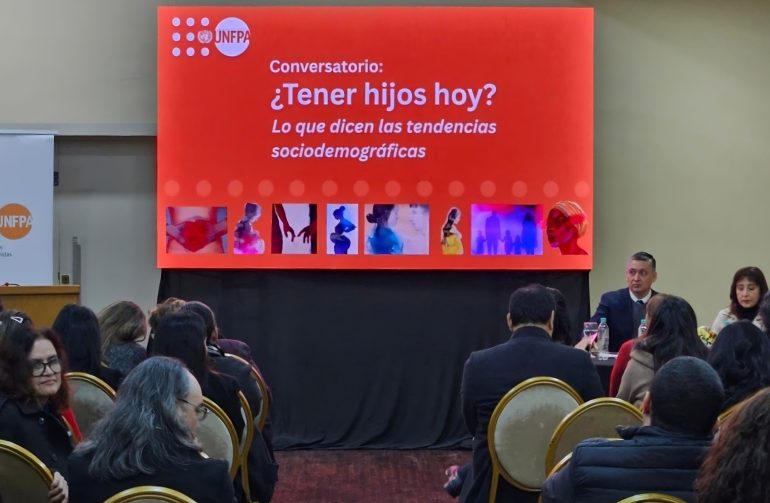To address factors driving declining fertility rates in Paraguay, the United Nations Population Fund (UNFPA) hosted the “Having Children Today? What Sociodemographic Trends Reveal” discussion. The event at the Guaraní Hotel in Asunción brought together experts to explore the complex factors driving Paraguay’s declining fertility, and the role of public policy in addressing them.
The event convened representatives from government, academia, international organisations, civil society, and the media. They examined the economic, social, and cultural dynamics behind falling birth rates.
Notable speakers
Iván Ojeda, Director of Paraguay’s National Institute of Statistics (INE), presented data on Paraguay’s declining fertility rate. These figures stem from factors like higher female education, later marriages, and increased female workforce participation. These trends reflect broader societal shifts, influencing family planning decisions.
Rocío Galiano Marés, UNFPA National Representative in Paraguay, called for public policies tailored to diverse family structures. She advocated for equal sharing of parenting and household responsibilities between mothers and fathers. She argued that such measures foster personal development and move beyond traditional “pro-natalist” approaches, enabling families to thrive in modern contexts.
Ignacio Pardo, a Uruguayan researcher and professor at the University of the Republic of Uruguay, introduced the “Second Demographic Transition.” This notes a global shift towards smaller families driven by economic uncertainty, the high cost of balancing work and childcare, and inadequate childcare services.
He also noted the influence of evolving cultural values. With self-fulfilment and personal aspirations being increasingly prioritised over traditional family goals.
Paraguay’s declining fertility: a pressing need
Aimed at policymakers, statisticians, researchers, students, and journalists, the discussion underscored UNFPA’s commitment to evidence-based policies that uphold reproductive rights.
“This event reaffirms our dedication to generating knowledge that empowers people to make free and informed choices about their reproductive lives,” said Zunilda Acosta from UNFPA’s Institutional Communications Department.
The dialogue highlighted the pressing need for adaptive policies to address the challenges of modern family dynamics amid rapid sociodemographic change.
Also read how the the Ministry of Health aimed to improve the birth and death registration process in Paraguay.


